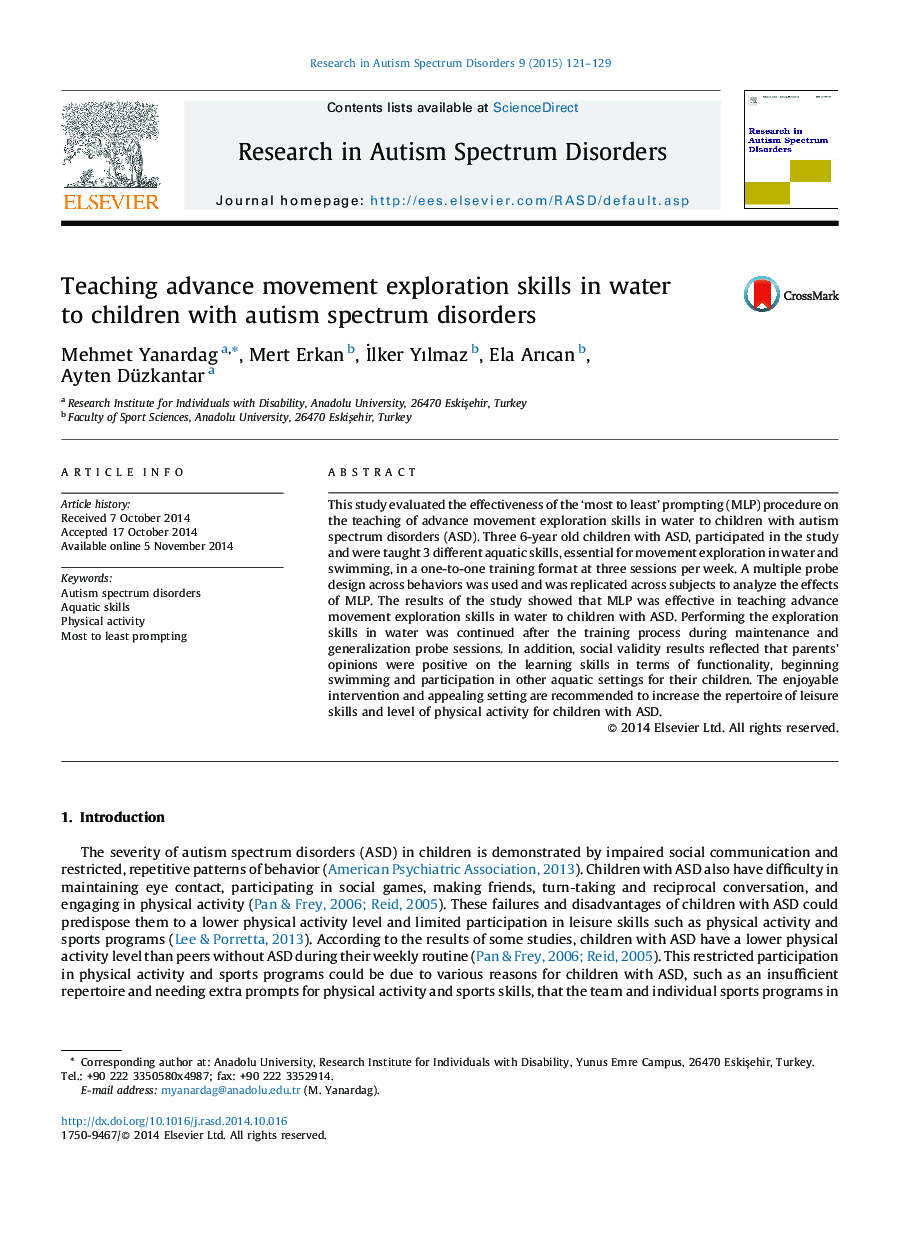| Article ID | Journal | Published Year | Pages | File Type |
|---|---|---|---|---|
| 6848060 | Research in Autism Spectrum Disorders | 2015 | 9 Pages |
Abstract
This study evaluated the effectiveness of the ‘most to least’ prompting (MLP) procedure on the teaching of advance movement exploration skills in water to children with autism spectrum disorders (ASD). Three 6-year old children with ASD, participated in the study and were taught 3 different aquatic skills, essential for movement exploration in water and swimming, in a one-to-one training format at three sessions per week. A multiple probe design across behaviors was used and was replicated across subjects to analyze the effects of MLP. The results of the study showed that MLP was effective in teaching advance movement exploration skills in water to children with ASD. Performing the exploration skills in water was continued after the training process during maintenance and generalization probe sessions. In addition, social validity results reflected that parents’ opinions were positive on the learning skills in terms of functionality, beginning swimming and participation in other aquatic settings for their children. The enjoyable intervention and appealing setting are recommended to increase the repertoire of leisure skills and level of physical activity for children with ASD.
Related Topics
Life Sciences
Neuroscience
Behavioral Neuroscience
Authors
Mehmet Yanardag, Mert Erkan, Ä°lker Yılmaz, Ela Arıcan, Ayten Düzkantar,
